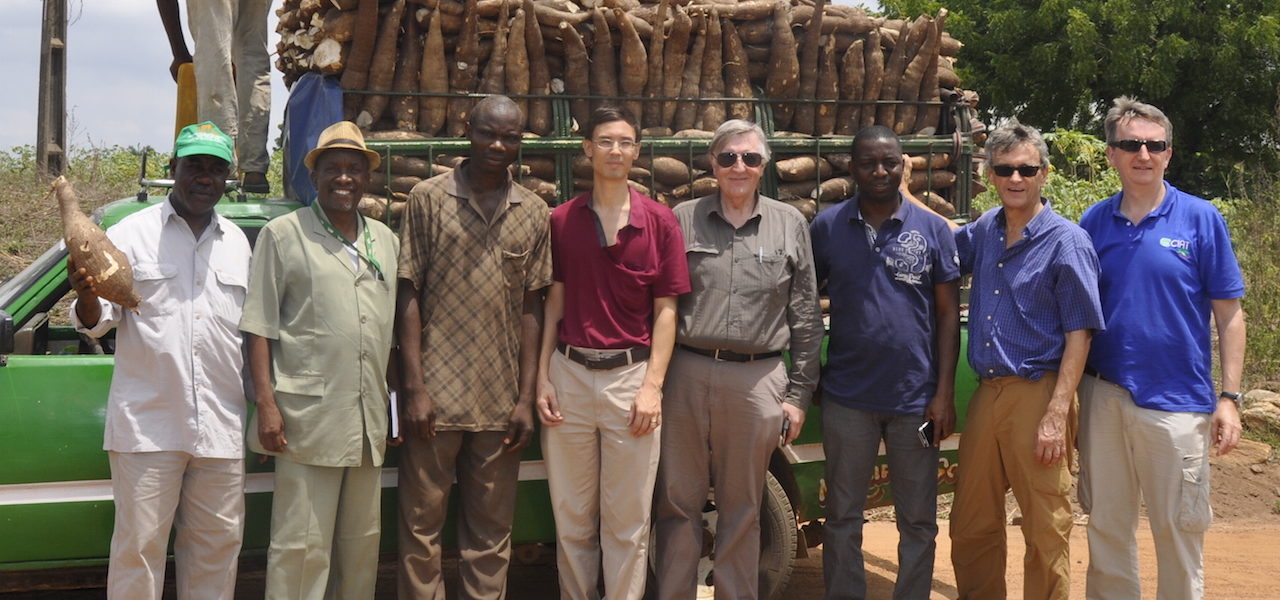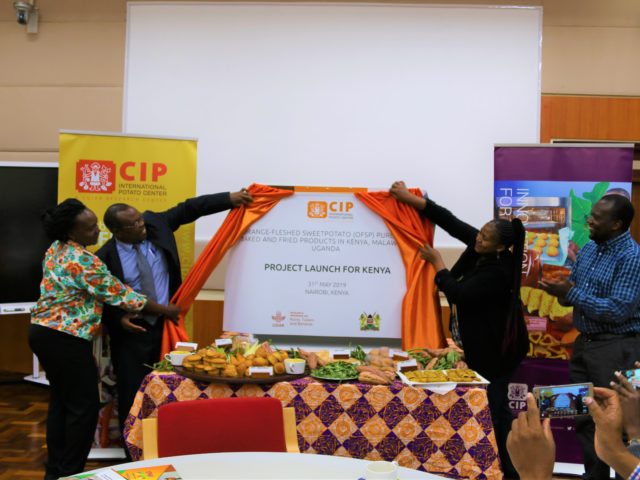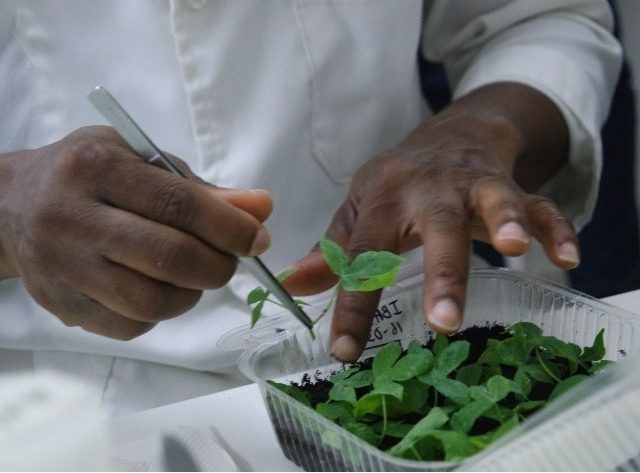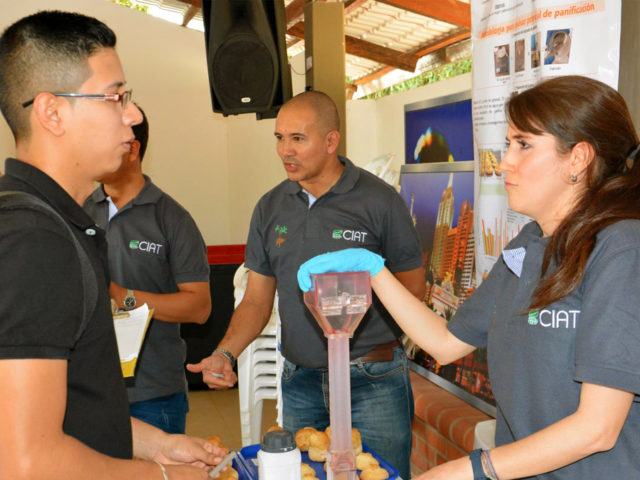A photo report about the visit to Niji Lukas Group, Ilero, Oyo State, Nigeria by Thierry Tran
IITA, a participating center of the CGIAR Research Program on Roots, Tubers and Bananas (RTB), and the Niji Lukas Group (Nigeria) have been collaborating on cassava processing machine design, fabrication testing and commercialization for the past 10 years. The latter owns a cassava farm, a cassava & yam processing factory and an equipment factory under different companies of the Group: Niji Farms and Allied Services Ltd., Niji Foods Nig Ltd. and Niji Lukas Nig Ltd., respectively. 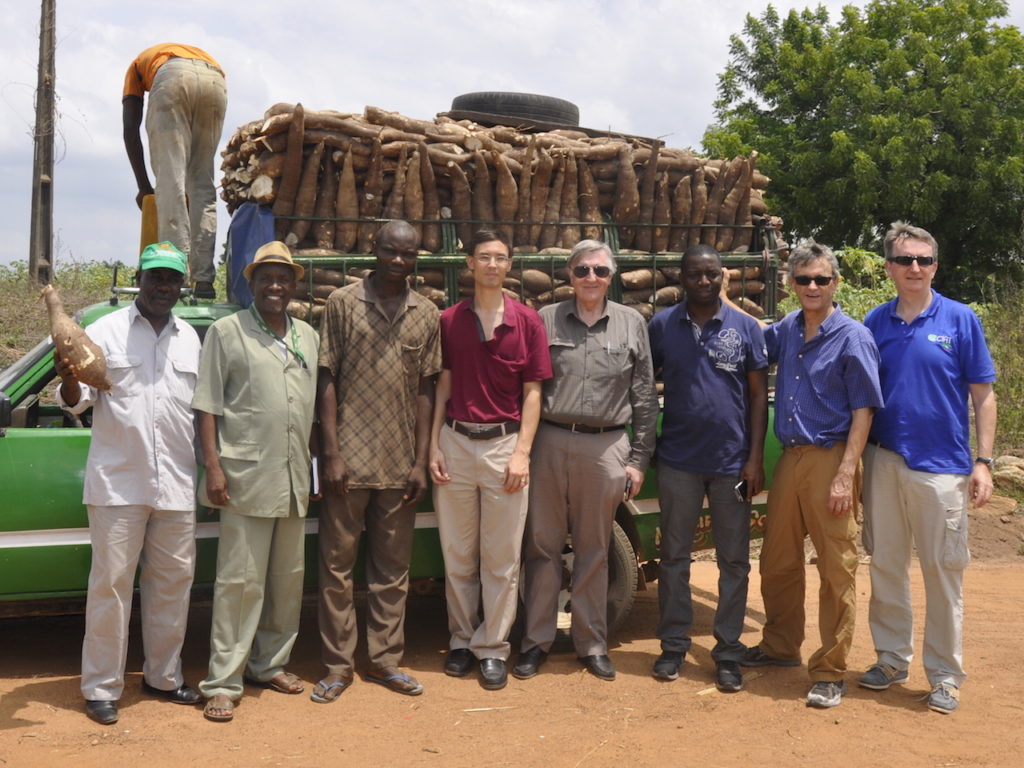
In May 2015 an RTB team visited the Niji Lukas Farm in Oyo State, Nigeria, in order to see an example of a cassava processing enterprise using mechanized and other improved methods for the production of diverse cassava products (gari, fufu, flour, etc.). Here, a quick photo shot of the team with a fresh cassava transporter enroute to Ilero town.
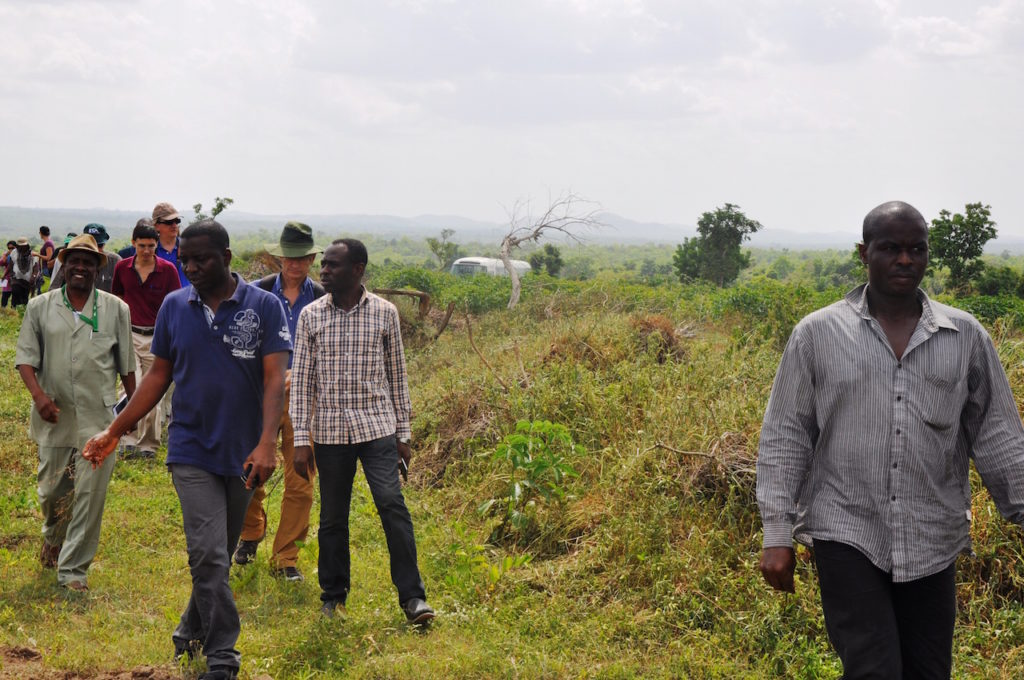 The visit started with a tour through the cassava farm, where 3000 acres (1214 ha) of cassava have been planted since 2011. An additional 2000 acres (809 ha) were cleared in 2015. Parts of the land are rented from private individuals and/or the government, and others belong to Niji Lukas. Here, Mr Adeniji, owner of Niji Farms/Foods Nig. Ltd., and the farm manager lead the team through the fields.
The visit started with a tour through the cassava farm, where 3000 acres (1214 ha) of cassava have been planted since 2011. An additional 2000 acres (809 ha) were cleared in 2015. Parts of the land are rented from private individuals and/or the government, and others belong to Niji Lukas. Here, Mr Adeniji, owner of Niji Farms/Foods Nig. Ltd., and the farm manager lead the team through the fields. 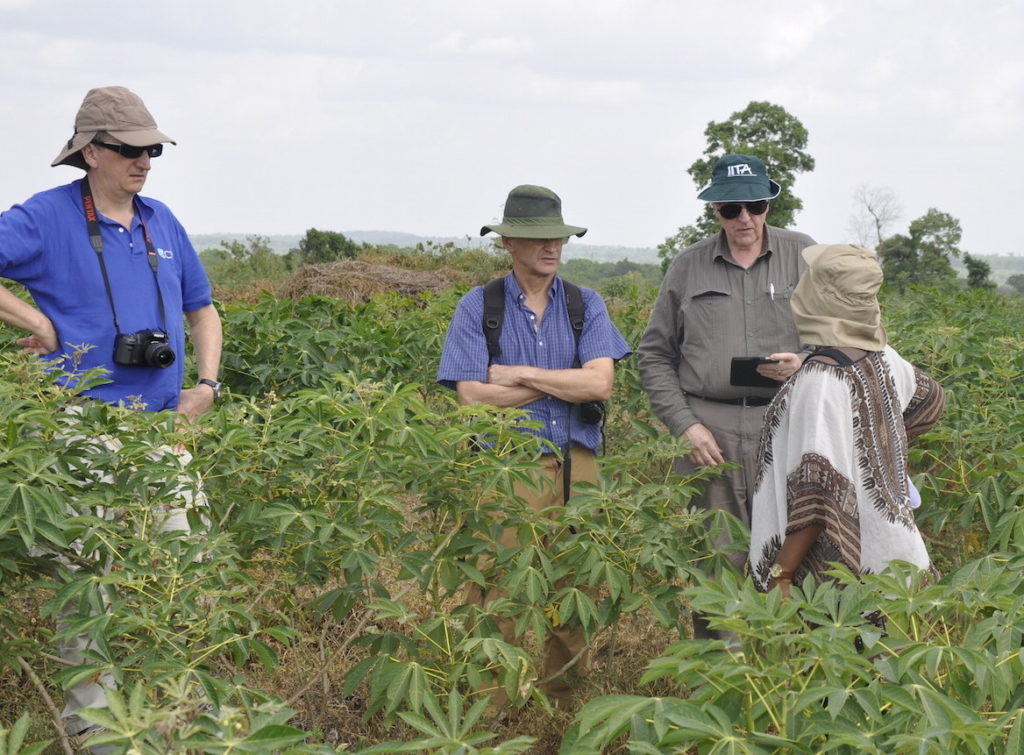
Niji Lukas serves as a planting material grower and supplier to HarvestPlus, a part of the CGIAR Research Program on Agriculture for Nutrition and Health (A4NH) aimed at developing and promoting biofortified food crops. The farm has planted 225 acres of Vitamin A cassava including foundation seeds. Varieties include the TME Series 419, 581 and 30572. Other crops planted are 30,000 stands of yam and 3000 suckers of plantain. In 2015, 50 acres of vitamin A cassava have been harvested by HarvestPlus, a project funded by BMGF and many other generous donors. 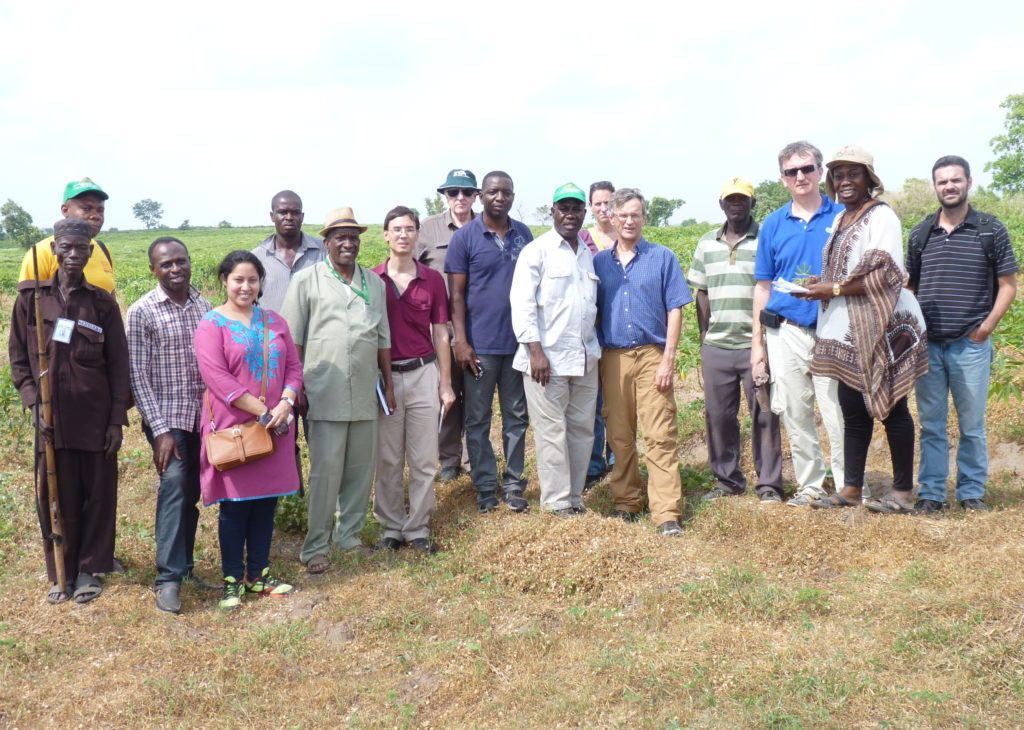 As noticed by the team members, weed management is a big challenge on the farm. Planting of crops, weed management and some other farm activities are usually done manually by a team of 20 workers. Here, a group photo shot on the farm.
As noticed by the team members, weed management is a big challenge on the farm. Planting of crops, weed management and some other farm activities are usually done manually by a team of 20 workers. Here, a group photo shot on the farm. 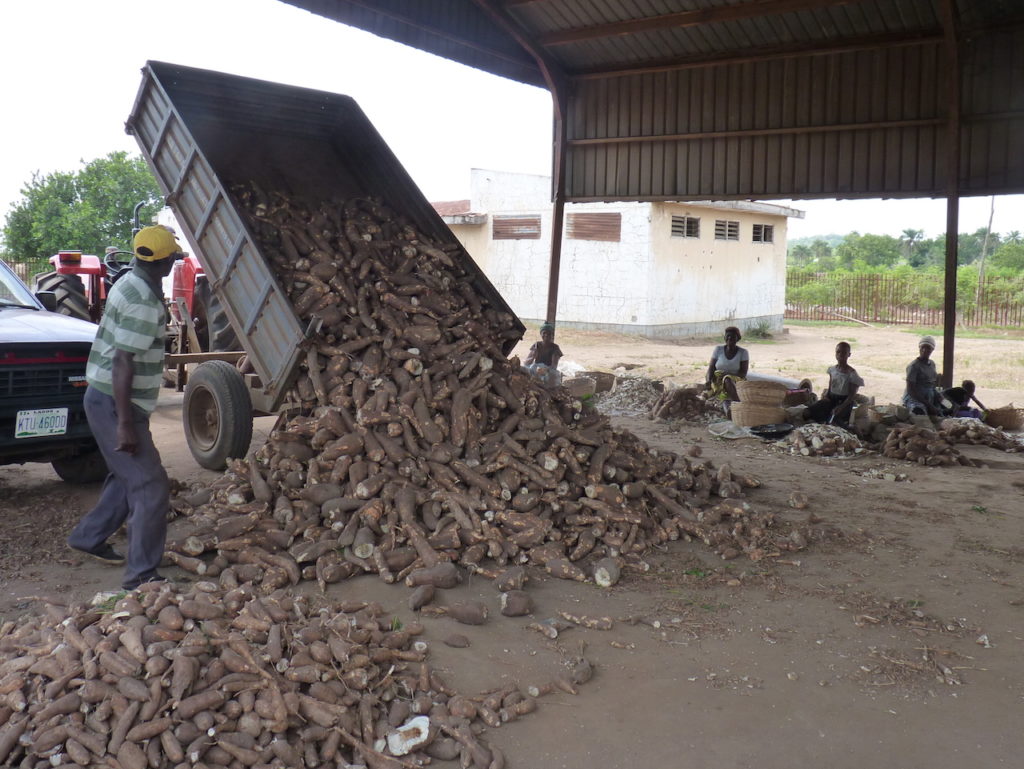
Once at the processing center, the operations start with the delivery of cassava from the Niji Farm. Here, a tractor with a discharge collector is tipping off loads of harvested cassava roots. 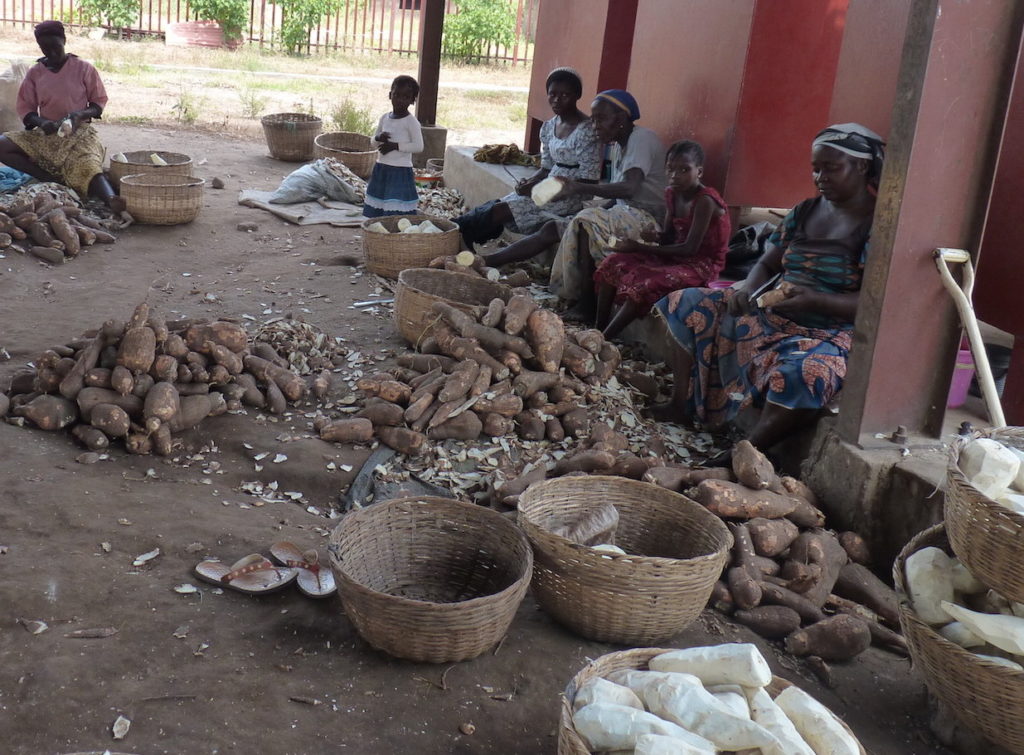
Niji Lukas uses a combination of mechanical peeling and manual peeling, which enables to optimize production capacity and at the same time to create job opportunities for local women. On average 40 women are engaged for cassava peeling.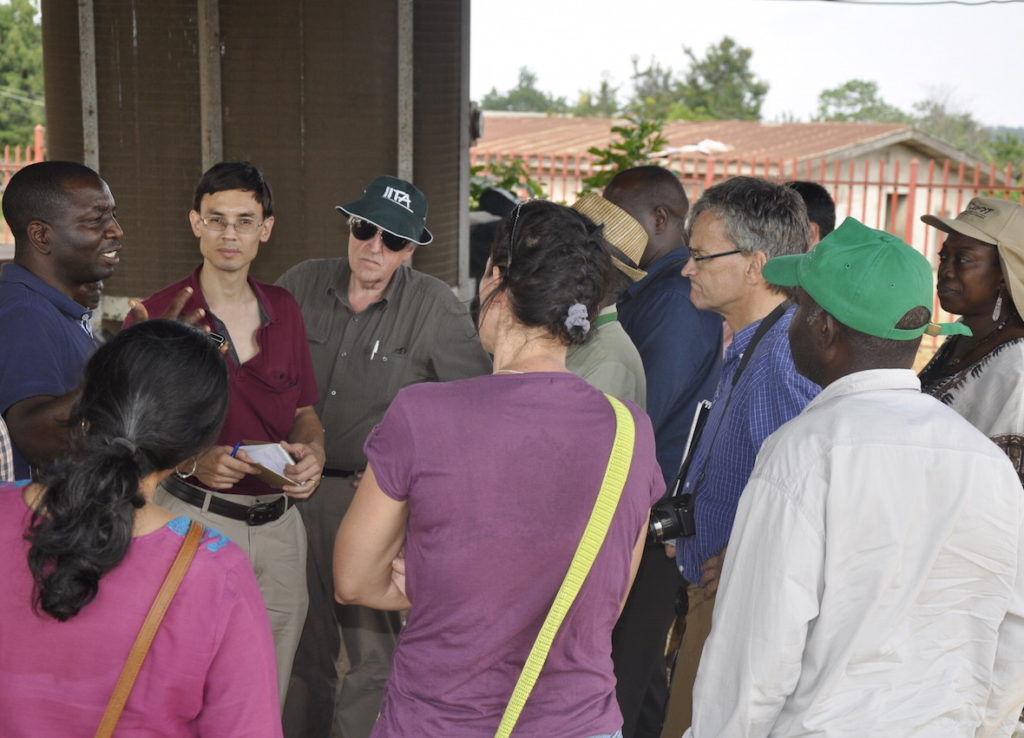
Mr. Kola Adeniji explains that the high quality cassava flour (HQCF) line has a capacity of 5 MT per day but presently only produces 2 MT. In the wet section there are two graters (2000 kg/hour/grater), flour pressing machines (1000 kg/hour/press) and one granulator. In the dry section, there are two flash dryers (capacity = 2000 kg/8 hrs) for the HQCF line, two milling machines and one sifter. 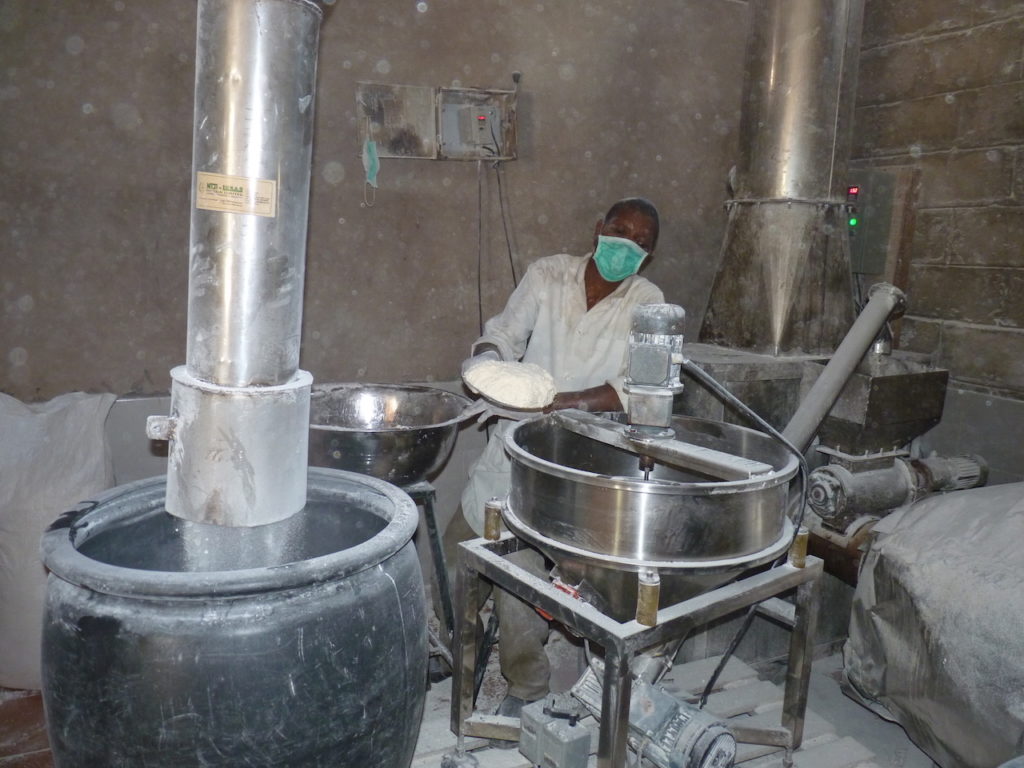
The flash dryers at Niji foods have been gradually improved with the experience of the engineering branch of Niji Lukas, and machine components have been added, e.g. a feeding system that meters a regular amount of wet grits to the flash dryer. It dries 250 kg HQCF per hour from an initial 50% moisture content down to 9-10%. One operator monitors the dryer and adjusts the feeding rate if necessary. 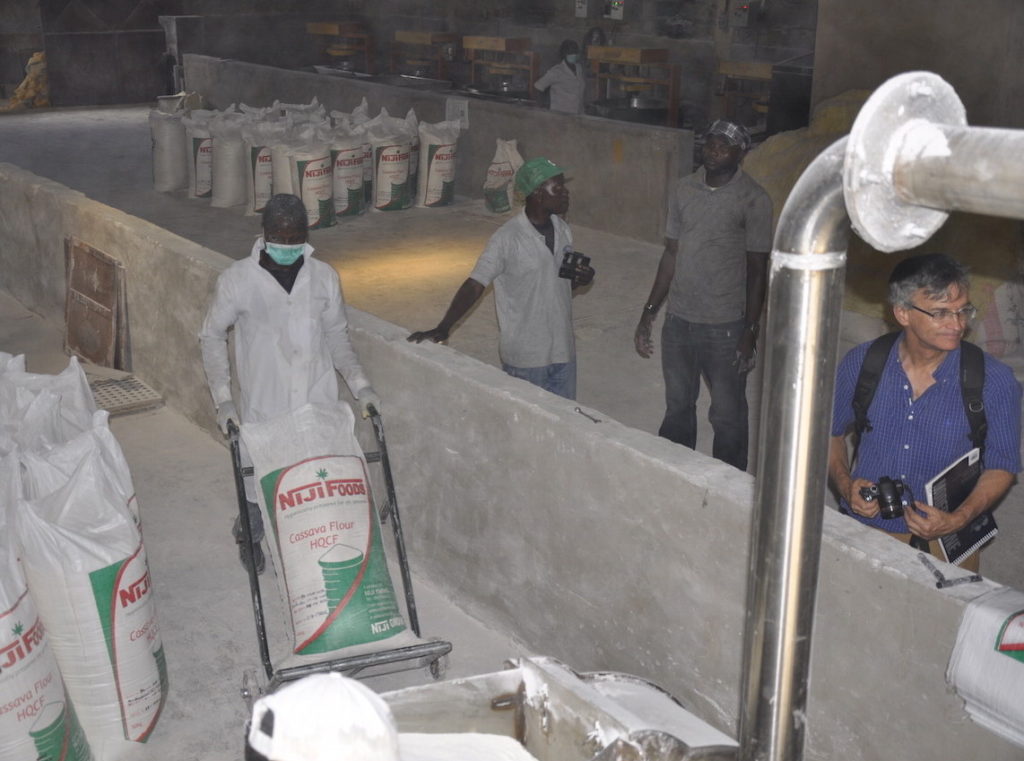
After drying, the cassava flour is milled in two milling machines, whereat the combined milling capacity is 1600 kg per hour. 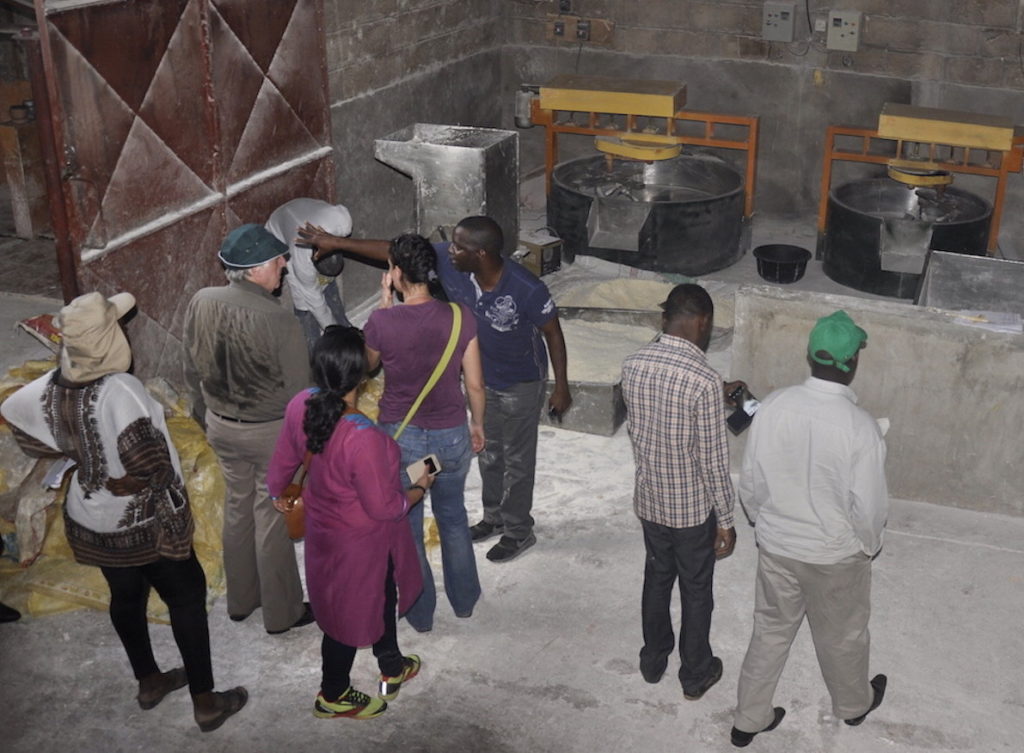
There are six “toasters” at the gari mechanical fryer section, each one with a capacity of 500 kg per 8 hours of operation and heated via a diesel burner. Roasted gari is kept inside cooling bowls. Before packaging, flour and gari are sifted in an electrically driven vibrator. 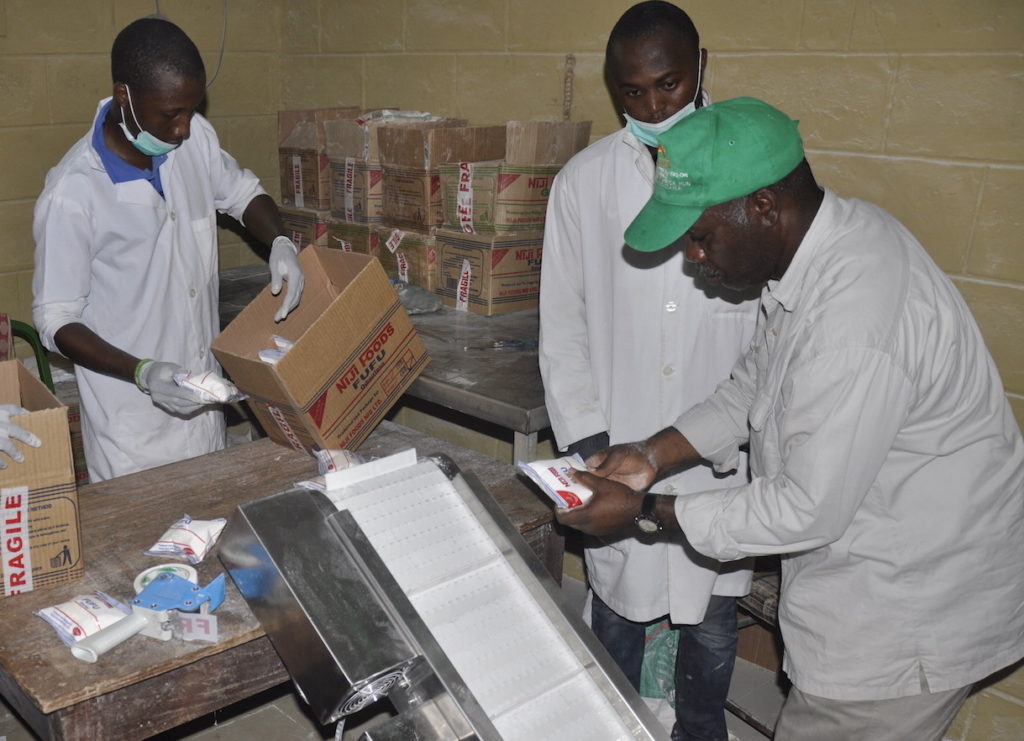
Niji Foods has installed state of the art technologies for food packaging and is one of the leading processors packing traditional foods to the highest standards accepted by the Nigerian food regulatory agency (NAFDAC) and exporters. 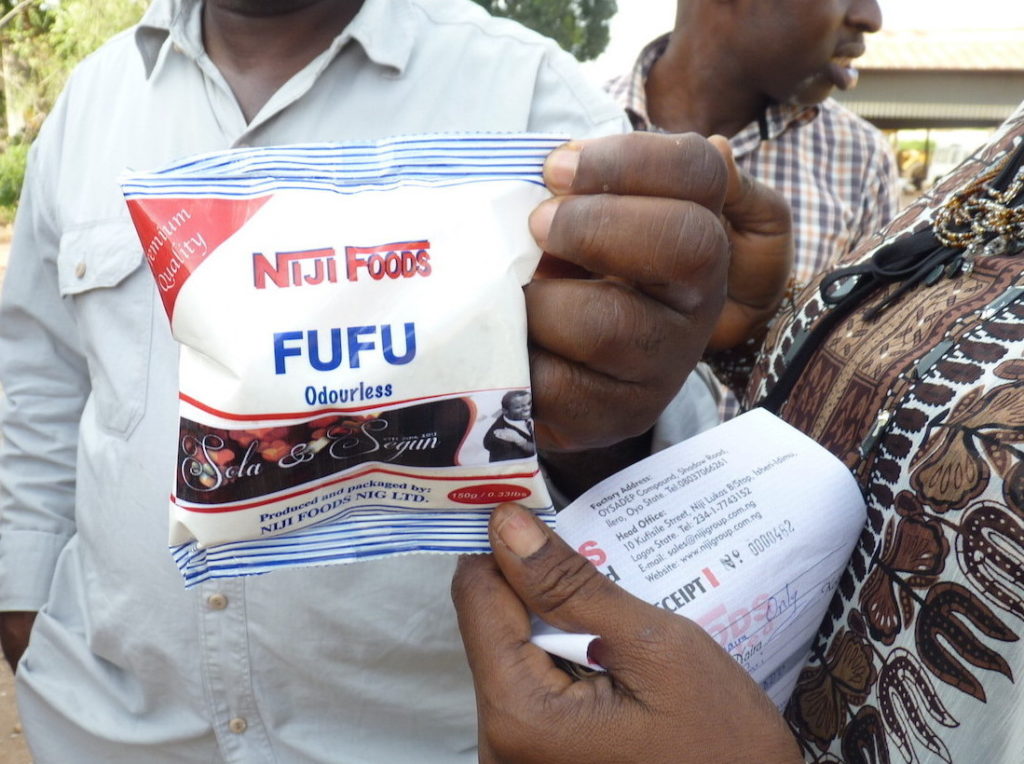
Other products processed at the factory are yam flour and the high quality fufu powder, a fermented flour. The production capacity per day is 1000 kg of fufu. Some of the companies that order fufu, yam flour, gari, HQCF, etc. from Niji Lukas include distributors in Lagos, Osogbo, Enugu and Ibadan; IITA, HarvestPlus, the IFAD/IITA HQCF value chain project and Honeywell Flour Mill. Some of these buyers export the cassava and yam products. 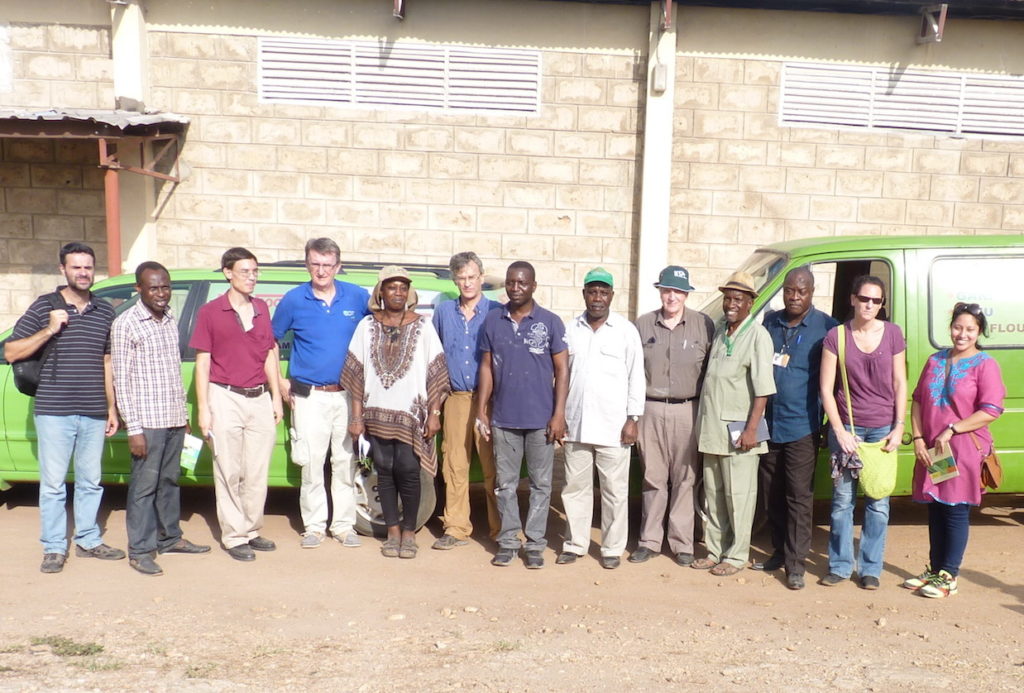
Here, a final shot of the RTB team at Niji Lukas Foods Nigeria Ltd.
Editor’s note: This photo report was corrected on 4 August 2016 to more accurately reflect the conditions of cassava peeling at the factory.
